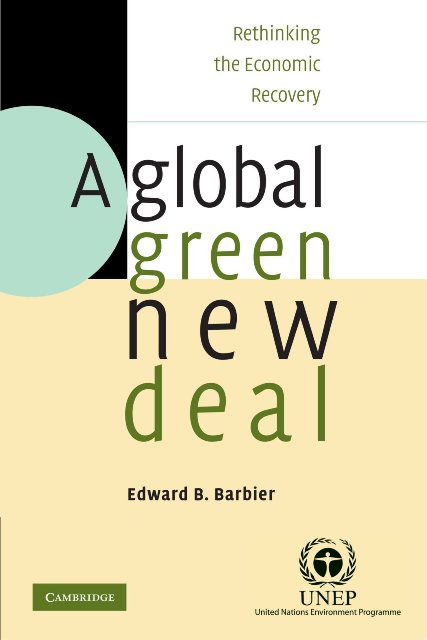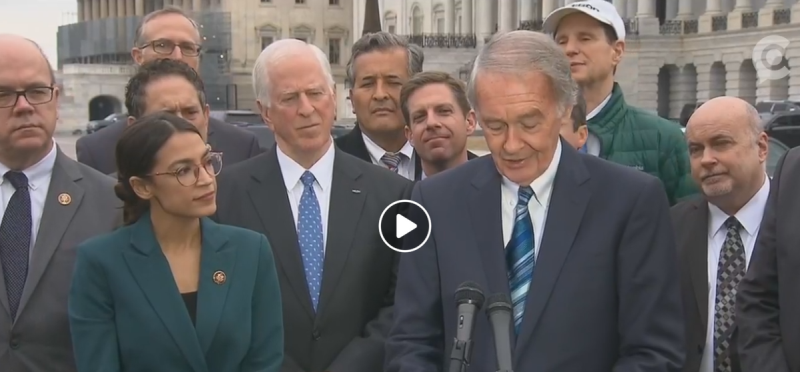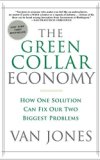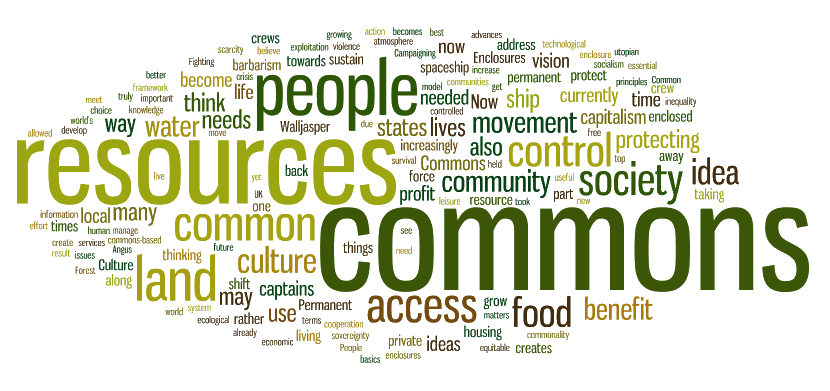New Economy Movement: Difference between revisions
Siterunner (talk | contribs) No edit summary |
Siterunner (talk | contribs) No edit summary |
||
| Line 528: | Line 528: | ||
[[Category:Atmosphere]] | [[Category:Atmosphere]] | ||
[[Category:Biodiversity]] | [[Category:Biodiversity]] | ||
[[Category:City Governments]] | |||
[[Category:City-County Governments]] | [[Category:City-County Governments]] | ||
[[Category:Clean Water]] | [[Category:Clean Water]] | ||
Revision as of 18:57, 11 June 2020
A New Economy -- Diverse & Innovative
GreenPolicy360 continues development of a New Economy with "Eco-nomics"
- A Vision of a "Cooperative Commonwealth"
··········································································································
Five Women Economists Redefining the Science of Economics
Esther Duflo, Stephanie Kelton, Mariana Mazzucato, Carlota Perez and Kate Raworth are 'united in one thing: their amazement at the way economics has been defined and debated'... They are 'revolutionising their field' by questioning the meaning of everything from value and debt to growth and GDP.
························································································
GreenPolicy360: We're working on it --- "Eco-nomics"
Then there's Rebecca Henderson, a professor at Harvard Business School and author of Reimagining Capitalism in a World on Fire published in April 2020.
There's no doubt, one way or another, times they are a changing....
·································································
A Shift from Shareholders to Stakeholders
Kevin Sneader, global managing partner for McKinsey & Company, shares his perspective on the business world: What's driving the shift from shareholders to stakeholders?
There's five reasons: First, inequality. A growing awareness that while the inequality gap has closed between countries, it's increased within countries. Secondly, climate change and the environment. An awareness of the growing threat and the need for action, now. Thirdly, globalization receding. A move towards more regional, even local approach, with all the impact that has on everyone in the supply chain. Fourthly, trust. It's hard for any CEO not to be aware of the breakdown in trust, not just between business and society, but between many institutions in society, more generally. And we have our part to play. Fifth, and perhaps most importantly, technology, the way in which it's shifting. The way in which is shifting jobs and the real recognition that the workforce and how it operates is no longer going to be taken for granted. There really needs to be a different approach. Those are the five reasons I offer up as a reason for the shift from shareholder to stakeholder economy. (Via GZero)
···························································
New Economic Thinking
The Making of a Democratic Economy: Community Wealth-Building for a Sustainable Future
• Excerpt from The Making of a Democratic Economy by Ted Howard, co-founder of the Democracy Collaborative, and Marjorie Kelly, author of Owning Our Future: The Emerging Ownership Revolution.
Via the Bioneers
When the U.S. Constitution was written, the Industrial Revolution, engineered by the new aristocracy of the railroad barons and kings of capital, had not yet emerged. The word “corporation” appears nowhere in that document. But by 1813 John Adams was writing to Thomas Jefferson, “Aristocracy, like Waterfowl, dives for ages and then rises with brighter plumage.”
We’ve seen that happen throughout American history, from the Gilded Age of the late 19th century to the “new Gilded Age” of the 21st. Today we live in a world in which 26 billionaires own as much wealth as half the planet’s population. The three wealthiest men in the U.S. — Bill Gates, Jeff Bezos, and Warren Buffet — own more wealth than the bottom half of America combined, a total of 160 million people. Meanwhile, an alarming 47 percent of Americans cannot put together even $400 in the face of an emergency, leaving most of us unprepared to face such ordinary mishaps as a flat tire or a child’s twisted ankle.
Our economy is not only failing the vast majority of our people; it is literally destroying our planet. It’s consuming natural resources at more than one-and-a-half times the Earth’s ability to regenerate them. We are razing the only home our civilization has, yet we remain caught inside a system designed to perpetuate that razing, in order to feed wealth to an elite.
The reason is that the system has a capital bias at its core, a favoritism toward finance and wealth-holders that is woven invisibly throughout the system. We might call it an “extractive economy,” for it’s designed to enable a financial elite to extract maximum gain for themselves, everywhere on the globe, heedless of damage created for workers, communities, and the environment...
With an eye toward building a more democratic economy
New approaches—such as chartering corporations to make them accountable to the public and giving equity shares to worker ownership funds, placing public ownership of utilities at the center of a Green New Deal, and creating public banks to finance a new, bottom-up community development paradigm—don’t seek to simply put back what’s being destroyed. They point to how a whole new system is being born now, in the belly of the beast. They herald a potentially profound shift from an extractive economy to a democratic economy.
The problem is that people by and large don’t see this — not even the people who are part of it. The work of employee-owned companies, impact investing, public banking, racial justice in economic development, local purchasing by anchor institutions, and more is being done in siloed activities all over the world.
It’s not that the new system hasn’t been named. It has too many names: “stakeholder capitalism,” the “solidarity economy,” “new economy,” “sharing economy,” “regenerative economy,” the “living economy.”
The struggle for new language is a sign of the times. We stand at a turning point where many share a sense of peril about the possibility of systemic collapse. As the old system fails, we’re losing the conceptual world that has given our lives meaning. We need new vision and new naming.
Socialism isn’t it. Capitalism isn’t it. An economy adequate to today’s challenges just isn’t there in those 19th-century paradigms. The “democratic economy” isn’t yet a term in common use. It’s offered here as a unifying frame for the movement that doesn’t know it’s a movement, aiming to help more of us recognize the potential for system-level transformation.
A democratic economy isn’t a top-down command economy. It isn’t capitalism plus more regulations and social safety nets, nor is it capitalism plus green technologies. Building a democratic economy is about redesigning basic institutions and activities—companies, investments, economic development, employment, purchasing, banking, resource use—so that the core functioning of the economy is designed to serve the common good.
Democracy needs to move inside the economy. Putting such values as sustainability or fairness on the outside of the system through regulation and social safety nets is like attaching barnacles to the side of a whale. These values need to be in the DNA. Anything less than deep redesign will likely fail to see us through the tumultuous era ahead for the earth community.
For More visit GreenPolicy360's friends -- the Bioneers
See Ted Howard speak about 'Making of a Democratic Economy' at the Bioneers Conference
• http://conference.bioneers.org
• https://conference.bioneers.org/speakers
·······································
The Green New Deal with 2007-08 Origins in the UK
In the U.K. the Green New Deal Group began to use the term "Green New Deal" in 2007 and launched a landmark report on 21 July, 2008 calling for a "Green New Deal". The group consisted of two former directors of Friends of the Earth, the Guardian's economics editor, Larry Elliott, the Green Party MEP Caroline Lucas and Andrew Simms of the New Economics Foundation...
A Global Green New Deal by Edward Barbier
- Published by Cambridge Press / 2010
New Economics in the U.K.
Rebooting the UK’s Green New Deal
Lessons from the last 10 years – and challenges for the next
○
Green New Deal: UK & US
Economics for the Many, edited and with an introduction by John McDonnell, Shadow Chancellor of the Exchequer, features contributions from the participants in his New Economics conferences, including Nick Srnicek, Ann Pettifor, Prem Sikka, and Guy Standing. It covers topics from housing, public ownership, and fairer international trading systems to industrial policy for the twenty-first century and how to tackle tax avoidance and regional imbalances. Together, the essays in this volume lay out a vision for a new economics, one that works for the many, not the few.
In her essay 'To Secure a Future, Britain Needs a Green New Deal', Ann Pettifor makes a compelling case for change in the way Britain handles renewable energy.
The era of procrastination, of half measures, of soothing and baffling expedients, of delays, is coming to its close. In its place, we are entering a period of consequences.
Britain needs a Green New Deal to Build a Sustainable, Stable Economy
If Britain is to secure a sustainable, stable and liveable future for the people of Britain, then implementation of the Green New Deal will be vital. Not just for the sake of the ecosystem, but also for the sake of rebuilding a stable, sustainable economy.
·····················································
New Economics in the U.S.
• https://www.greenpolicy360.net/w/Green_New_Deal
Introducing the "Green New Deal" at the U.S. Capitol
February 7, 2019
https://www.facebook.com/circa/videos/2169983269919866/
○
Social Media Lights Up, Videos Deluge YouTube
Via PBS / Why Democrats say the U.S. needs a Green New Deal to combat climate change
A Green New Deal: Bill McKibben Hails Alexandria Ocasio-Cortez’s Plan to Combat Climate Change
Fox News is losing its mind over Alexandria Ocasio-Cortez and the Green New Deal
The Green New Deal: Inaction is Not a Choice
Please don’t let the naysayers dim our confidence in our power to step up
Inaction is not a choice. This realization changes everything...
By Frances Moore Lappé
• https://www.commondreams.org/views/2019/03/12/green-new-deal-not-choice
• https://www.commondreams.org/author/frances-moore-lappe
··············································································
From Neoliberalism to 'Progressive Capitalism'
By Joseph Stiglitz / Marketwatch, May 2019
...We can thank former President Ronald Reagan and former British Prime Minister Margaret Thatcher for our current state of affairs. The neoliberal reforms of the 1980s were based on the idea that unfettered markets would bring shared prosperity through a mystical trickle-down process.
We were told that lowering tax rates on the rich, financialization, and globalization would result in higher standards of living for everybody.
Instead, the U.S. growth rate fell to around two-thirds of its level in the post-war era — a period of tight financial regulations and a top marginal tax rate consistently above 70% — and a greater share of the wealth and income from this limited growth was funneled to the top 1%.
Instead of the promised prosperity, we got deindustrialization, polarization, and a shrinking middle class. Unless we change the script, these patterns will continue — or worsen.
Fortunately, there is an alternative to market fundamentalism.
Through a pragmatic rebalancing of power between government, markets, and civil society, we can move toward a freer, fairer, and more productive system. Progressive capitalism means forging a new social contract between voters and elected officials, workers and corporations, rich and poor.
To make a middle-class standard of living a realistic goal once again for most Americans and Europeans, markets must serve society, rather than vice versa...
(More)
Stiglitz on "Progressive Capitalism"
'Per Joseph Stiglitiz: This agenda is eminently affordable; in fact, we cannot afford not to enact it. The alternatives offered by nationalists and neoliberals would guarantee more stagnation, inequality, environmental degradation, and political acrimony, potentially leading to outcomes we do not even want to imagine.
• https://www.nytimes.com/2019/04/19/opinion/sunday/progressive-capitalism.html
• https://www.nytimes.com/2019/05/10/books/review/joseph-e-stiglitz-people-power-profits.html
• https://boingboing.net/2019/05/31/regulation-science-trustbustin.html
• https://www.scientificamerican.com/article/the-american-economy-is-rigged
Nobel Memorial Prize in “Economic Science” in 2001
The reason that the invisible hand often seems invisible is that it is often not there.
Macroeconomic policy can never be devoid of politics: it involves fundamental trade-offs and affects different groups differently.
"The term commonwealth is as American as Massachusetts, Kentucky, Pennsylvania or Virginia, all of which call themselves commonwealths. It conveys the sense of things we hold in common, including our precious natural resources"
People, Power, and Profits: Progressive Capitalism for an Age of Discontent
• https://www.amazon.com/People-Power-Profits-Progressive-Capitalism/dp/1324004215
... the economic solutions are often quite clear. We need to exploit the benefits of markets while taming their excesses, making sure that markets work for us―the U.S. citizens―and not the other way around. If enough citizens rally behind the agenda for change outlined in this book, it may not be too late to create a progressive capitalism that will recreate a shared prosperity. Stiglitz shows how a middle-class life can once again be attainable by all.
The Price of Inequality: How Today's Divided Society Endangers Our Future
• https://www.amazon.com/Price-Inequality-Divided-Society-Endangers-ebook/dp/B007MKCQ30
Globalization and Its Discontents
• https://www.amazon.com/Globalization-Its-Discontents-Joseph-Stiglitz-dp-0393051242/dp/0393051242
·············································
Unless Capitalism Changes
By Drew Hansen
February 2019
Capitalism has generated massive wealth for some, but it’s devastated the planet and has failed to improve human well-being at scale.
• Species are going extinct at a rate 1,000 times faster than that of the natural rate over the previous 65 million years (see Center for Health and the Global Environment at Harvard Medical School).
• Since 2000, 6 million hectares of primary forest have been lost each year. That’s 14,826,322 acres, or just less than the entire state of West Virginia (see the 2010 assessment by the Food and Agricultural Organization of the UN).
• Even in the U.S., 15% of the population lives below the poverty line. For children under the age of 18, that number increases to 20% (see U.S. Census).
• The world’s population is expected to reach 10 billion by 2050 (see United Nations' projections).
How do we expect to feed that many people while we exhaust the resources that remain?
We need to build a new system: one that will balance economic growth with sustainability and human flourishing.
The central difference lies in ownership: whereas nobody is sure who owns public companies, startups go to great lengths to define who owns what.
Early in a company’s life, the founders and first recruits own a majority stake — and they incentivise people with ownership stakes or performance-related rewards. That has always been true for startups, but today the rights and responsibilities are meticulously defined in contracts drawn up by lawyers. This aligns interests and creates a culture of hard work and camaraderie. Because they are private rather than public, they measure how they are doing using performance indicators (such as how many products they have produced) rather than elaborate accounting standards... (we must continue to "incentivise people") with a system that values the employee more than what the employee can produce.
"Cooperative Commonwealth conjures more positive associations. Its emphasis on “cooperative” differentiates it... it conveys the sense, unlike hyper-competitive libertarian or neo-liberal or conservative economic philosophy, that we are all in this together and “we all do better when we all do better,” as the economist Jared Bernstein once put it. The notion of cooperation has a long tradition in the United States of barn-raisings, voluntary associations and the values you learn in kindergarten." -- John DeGraaf, 2014, From “The New Economy” to the Cooperative Commonwealth
···················································································································
Alliances, Coalitions, Cooperatives, Networks --- New Economy Models
A developing new American eco-nomics that looks to multiple political-economic solutions.
Among the working models being advanced are:
The New Economy Coalition (NEC) based in Boston, Massachusetts, formerly known as the New Economics Institute. It is a network of over 100 organizations working for what it describes as the "New Economy Movement".
New Economics Institute / Via Wikipedia
The roots of the NEC lay with the Schumacher Center for a New Economics (formerly the E.F. Schumacher Society) which was founded in 1980. In 2010, the NEC partnered with the New Economics Foundation (NEF) to create a new organisation called the New Economics Institute to promote alternative economic models.
New Economics Network
The New Economics Network was created by in 2009 as a loose network of about two hundred organizations working for a 'new economy'. In a lecture for the National Council for Science and the Environment Gus Speth said the organisation wanted to create a sustainable and caring economy.
In 2013, "New Economics Institute" merged with New Economy Network to became the "New Economy Coalition".
·······································································································································
The New Economy movement and widely diverse coalition of new economic approaches are often referred to as "the new economy".
A shared belief is that current economic systems needs to be restructured. Front-of-mind is a value that people and the planet should come first, that it is human and sustainable environmental well-being, not demanding economic growth, which should be prioritized.
The new economy draws on economic thought that challenges assumptions of mainstream neoclassical and Keynesian economics.
At GreenPolicy360 we are exploring the field of "eco-nomics". A diversity of new economics are growing and becoming a flourishing voice of change -- ecological economics; sharing economies; progressive capitalism; cooperatives; planning to protect the Commons; 'seventh generation' thinking; peer-to-peer, barter and micro-transactions; localism; fair-trade; earth systems science; 'Buddhist economics'... the diversity of ideas and adaptability of approaches can be said to be "a strategy of survival".
The New Economy movement has been described as ... a far-ranging coming together of organizations, projects, activists, theorists and ordinary citizens committed to rebuilding political economies from the ground up...
"The new economy is about increasing quality of life, improving health, and restoring the environment"
·························································
Institute for New Economic Thinking
What Money Can't Buy (Video series)
················································································
Democratic Party Needs New Economic Thinking
By Joseph Stiglitz -- https://www.ineteconomics.org/perspectives/blog/stiglitz-democratic-party-needs-new-economic-thinking
- Books by Joseph Stiglitz -- https://www.amazon.com/Joseph-E.-Stiglitz/e/B000APIKRK
- Joe Stiglitz, "Out in front" -- https://www.ineteconomics.org/search?q=stiglitz
···································································································
Resources
http://www.resilience.org/resource-detail/2353188-weaving-the-community-resilience-and-new (2015)
http://www.resilience.org/resource-detail/2353188-weaving-the-community-resilience-and-new (2015)
http://www.greenpolicy360.net/mw/images/GettingToTheNextSystem_Gus_Speth.pdf
http://www.alternet.org/story/155452/the_rise_of_the_new_economy_movement (2012)
http://www.huffingtonpost.com/gar-alperovitz/the-rise-of-the-new-econo_b_1532549.html (2012)
http://www.yesmagazine.org/new-economy/the-rise-of-the-new-economy-movement (2012)
http://www.thenation.com/article/new-economy-movement/ (2011)
···························
Eco-nomics
- A new vision, a paradigm shift in development @GreenPolicy360
··································
New Economics
○
Via Yes! Magazine - David Korten / 2001 ... Reclaiming the Commons
Via Sojourners / 2013 ... Reclaiming the Commons
○
Community-Wealth generation - Democracy Collaborative / ... Reclaiming the Commons
http://democracycollaborative.org/
Resources for practitioners and policy makers working to build community wealth and a new economy
○
How America's Largest Worker Owned Co-Op Lifts People Out of Poverty
○
2014
Gar Alperovitz (note relation to Gaylord Nelson, founder of Earth Day) - Video Keynote at the AAAS Climate Change Summit / American Association for the Advancement of Science's Summit on Climate Change Resilience and Governance
○
Next System Project - http://democracycollaborative.org/content/next-system-project
○
○
From the New Economy to the Cooperative Commonwealth by John de Graaf
○
Community-wealth generation focus areas:
- Democratization of Wealth
- Community Wealth Cities
- Community Wealth InfoGraphics
- Community Wealth Interviews
- Community Wealth Map
- Wealth Videos
- ○
- Anchor Institutions
- The Cleveland Model
- Community Development Corporations (CDCs)
- Community Development Financial Institutions (CDFIs)
- Land Trusts (CLTs)
- Cooperatives (Co-ops)
- Cross-Sectoral
- Employee Stock Ownership Plans (ESOPs)
- Green Economy
- Individual Wealth Building
- Individual Wealth Preservation
- Local Food Systems
- Municipal Enterprise
- New State & Local Policies
- Outside the U.S.
- Program Related Investments
- Reclaiming the Commons
- Social Enterprise
- Responsible Investing
- State Asset Building Initiatives
- State and Local Investments
- Transit Oriented Development
- University & Community Partnerships
- Worker Cooperatives
○
- Air Quality
- Alternative Agriculture
- Aquifers
- Atmosphere
- Biodiversity
- City Governments
- City-County Governments
- Clean Water
- Climate Policy
- Earth
- Eco-nomics
- Ecological Economics
- Ecology Studies
- Economic Development
- Economic Justice
- Economics
- Environmental Protection
- Environmental Security
- EOS eco Operating System
- Food
- Forests
- Green Best Practices
- Green Banking
- Green Business
- Green Infrastructure
- Green Politics
- Green Values
- Health
- Initiatives
- Labor Issues
- Labor Unions
- Natural Resources
- Networking
- New Economy
- Oceans
- Permaculture
- Resilience
- Rights of Nature
- Sustainability Policies
- Toxics and Pollution






